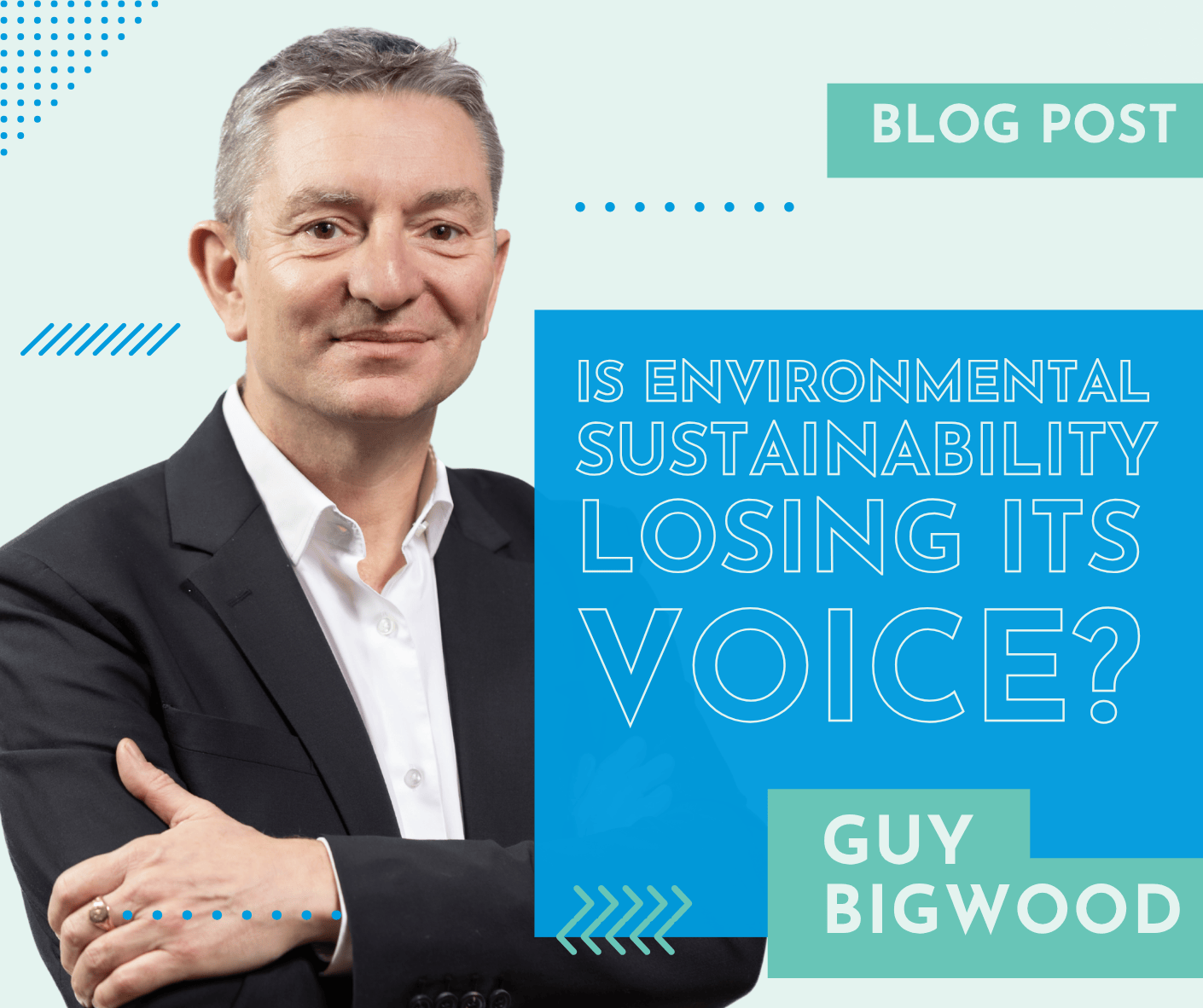
Written by Guy Bigwood, CEO and Chief Changemaker, GDS-Movement
Edited by Jess Henson, Marketing and Communications Manager, GDS-Movement
The Rise of Social Sustainability – and the Silence of the Environment
As destination leaders, we pride ourselves on adapting to change, crafting strategies that serve and protect people and places. The newly released and excellent 2025 DestinationNEXT Futures Study, developed through consultation with 537 participants (including myself) from 36 countries, offers inspiration but, also, a warning.
There’s much to applaud. The report’s findings demonstrate a growing emphasis on social impact, resident sentiment, inclusive governance, and community well-being. These are vital shifts toward a more regenerative tourism model, where tourism is managed and not just marketed. We celebrate and support their rise.
Yet, amidst these promising developments, one crucial voice seems alarmingly quiet: the voice of the planet.

A Drop in Priorities
Alarmingly, environmental sustainability has dropped dramatically in priority. Ranked the 4th most important trend globally in 2023, it has plummeted to 24th in 2025.
Regional disparities paint an even starker picture:
- Asia: 2nd
- Europe: 7th
- Latin America: 23rd
- United States: 25th
While the report highlights the importance of non-economic KPIs, measuring environmental impact ranked just 17th out of 25 indicators. “Sustainability” may appear in the language, but the environmental dimension is barely present. ESG is acknowledged, but the “E” for Environment is increasingly buried beneath the “S” for Social and the “G” for Governance. And we know the truth: you cannot govern or nurture a thriving society if its ecosystems – its air, water, and soil – are in decline.
My colleague, Marta Mills, illustrates the fallout of climate change on tourism (and why a crisis management plan is vital) in her blog post.
The World Economic Forum’s 2025 Global Risks Report does, too, and projects those risks into the future. It ranks extreme weather, driven by climate change, as the second-most-likely global crisis this year, ahead of economic downturn, unemployment, and others. Over the next decade, it becomes the top threat, followed by biodiversity loss, ecosystem collapse, and resource shortages. The predominance of environmental risks in the longer term is wholly and widely acknowledged, as well: they dominate the top three or more concerns across every sector included: civil society, governments, academia, business, and international bodies. If we’re aware of this, why aren’t we acting now?

A Widening Gap Between Risk and Responsibility
So, if the danger is so universally recognised, why isn’t action following at scale?
Some changemakers suggest this may be a case of mistaken responsibility. Destination Management Organisations (DMOs) might see climate action as the remit of municipalities or higher tiers of government. In cases where DMOs are hyperlocal or privatised, environmental responsibility may feel even more distant. But in truth, every institution contributes to nature’s degradation, and each one must also contribute to its repair. Laying blame only leads to arguments.
The climate crisis demands shared ownership and unprecedented collaboration. We must scale our collective response and invest in the solutions that can halt, and even reverse, the damage we’re already seeing.

The Pressure is Mounting. But Where is Our Urgency?
Record-breaking heatwaves, catastrophic wildfires, devastating floods, and intensifying storms are no longer anomalies. They are becoming the norm. These escalating crises are closing attractions, displacing communities, and fundamentally disrupting tourism economies.
Even the report recognises that “travellers themselves are more attuned than ever to tourism’s impact on ecosystems.” And yet, the lack of urgency around environmental sustainability is deeply concerning.
Wilful blindness is not a strategy. Hoping climate disruption will simply pass is not just irresponsible—it’s a business risk. By sidelining environmental sustainability, we are undermining the very foundation on which tourism, and our shared well-being, depends.
Is it a coincidence that The Economist Intelligence Unit’s Global Liveability Index 2025 reports a decline in liveability across North America and Western Europe? These regions, already grappling with the tangible impacts of climate change, have experienced some of the sharpest drops, with Western Europe seeing the steepest fall. Headlines like these in The New York Times don’t just signal reputational risk; they reveal the deepening environmental vulnerabilities that are eroding both liveability and economic stability.
Sustainability: Good for the Planet, Great for Business
Ignoring environmental sustainability isn’t just risky, it’s a missed business opportunity. Embracing sustainability drives innovation, reduces long-term risk, builds brand trust, and attracts conscious consumers and investors.
Consider this:
- The Confederation of British Industry found that in 2024, net-zero industries grew three times faster than the broader UK economy – 10% compared to just 3.2%. These sectors are proving more resilient, innovative, and future-ready.
- The 2025 Booking.com Travel & Sustainability Report shows 84% of travellers consider sustainability important. Over half actively consider the social and environmental impacts of their travel, with nearly 70% aspiring to leave places better than they found them.
The message is clear: destinations that embed regenerative principles into their DNA are not only more competitive, they’re more resilient and more aligned with future traveller demand. Sustainability isn’t just ethical; it’s a smart growth strategy.
No Resilient Tourism Without Healthy Environments
This isn’t just a missed business opportunity, it’s a wake-up call. Without clean air, thriving soil, healthy waterways, and stable weather, tourism cannot thrive, period. Environmental health underpins economic health.

What Must Be Done: Recentering our Priorities
We need more than well-meaning words or political gestures, we need bold, systemic action. Social equity and community empowerment are vital, but not at the expense of environmental health. If we ignore one to pursue the other, we’re simply trading short-term wins for long-term losses.
We must work with our destination communities to:
Regenerative destinations aren’t just reactive to crises, they’re proactively designed for long-term resilience, prosperity and wellbeing.

Our Call to Action
Now is the time to sharpen our focus and double down on our environmental responsibilities, while continuing to advance social good. In this age of accelerating climate disruption, we must act boldly, lead regeneratively, and design with the future in mind.
As the DestinationNEXT report rightly emphasises: “At its heart, this is about leadership. Destination organisations must champion regeneration—implementing best practices internally and equipping partners, policymakers, and visitors alike to follow suit. Intent alone is insufficient. Destination organisations must transform awareness into concrete strategies, measurable outcomes, and collaborative actions.”

A Rallying Cry to Sustainability Leaders
If you’re feeling disheartened reading this report, don’t retreat, refocus.
Yes, there’s pushback on sustainability across many sectors, especially in Western countries. But that only heightens the need for courageous leadership. If you’re working in destination sustainability, now is the time to step up, speed up, but not step back. The era of easy wins and low-hanging fruit is over. What’s needed now is:
- 1
Meaningful stakeholder engagement and strategic alignment
- 2
Bold decision-making
- 3
Serious investment and action on what truly matters
- 4
Better stories: Less eco-speak, and more linkage to practical action and business impact
This is not the moment to hesitate. It’s the moment to lead.
We believe this is our purpose, and we are on a mission to help you.




